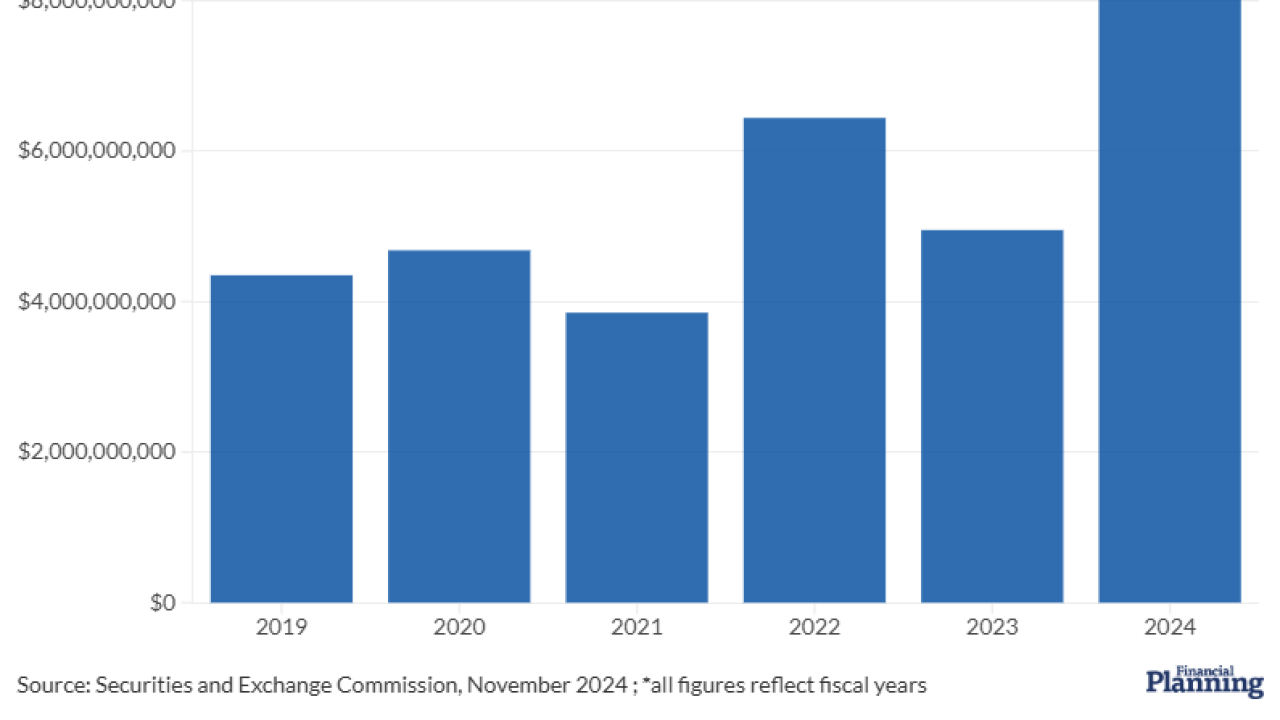The textile designer on the other end of my phone had a question. “I think I want to become a financial advisor,” he said. “I’ve always been good at managing my family’s finances and investments. What’s the best way to make this career shift?”
When I mentioned the query to Financial Planning
“Anyone who has managed their own investments over the past 10 years has probably done a good job,” she said during a recent visit to New York. An advisor’s career has evolved far beyond investment management, she went on, adding that automation can do much of that work. Planners must be adept at other services such as retirement advice, tax planning, strategies for paying for longer life spans and increased health care costs, she noted.

I later passed on McClanahan’s advice to the caller, a 47-year-old named Alexander Henschel who had been laid off from his job as a designer of textiles for home furnishings. He had received similar advice from other planners, and he knows a little something about trying to stay relevant.
“Manufacturing in the U.S., especially in textiles, has been rough,” he told me. “I see all my competition and customers having problems in this industry. Planning is definitely something I can see myself doing after textile design.”
Henschel may be at the beginning of a new career, but his prior experience sounds a warning knell for all planners, echoed by McClanahan. Artificial intelligence and automation is forcing massive change in all industries, from manufacturing to wealth management. Advisors must diversify their knowledge and services.
-
In the land of tech startups, there's real demand for planners — ones who can embrace the best of robo practices while keeping the human touch.
February 28 -
Many want to work as holistic planners, but common, entry-level jobs can easily lead to dead ends.
August 17 -
Several RIAs have taken a cue from doctors in recent years, running in-house residency programs to train the next generation of planners.
February 22
Surprisingly, the lesson also applies to firms’ compensation policies. When reporting his feature, “That Was Then, This is Now,” Senior Editor Charles Paikert learned of a subtle but dramatic shift taking place.
“The more reporting I did, the more it became apparent that individual compensation metrics were giving way to team-based and firm-wide goals,” Paikert told me. Some firms are rewarding advisors for initial introductions, client outreach and strong ratings on client satisfaction surveys. It’s a big departure from the historical model that gave major bonuses just to a few, highly performing advisors. Paikert tells me the trend is likely to accelerate.
Whether you are a new planner, an experienced one or a firm considering a new compensation structure, diversification is imperative. As Henschel, the wannabe planner, wrote to me on LinkedIn: “It’s a bit daunting but exciting at the same time.”





